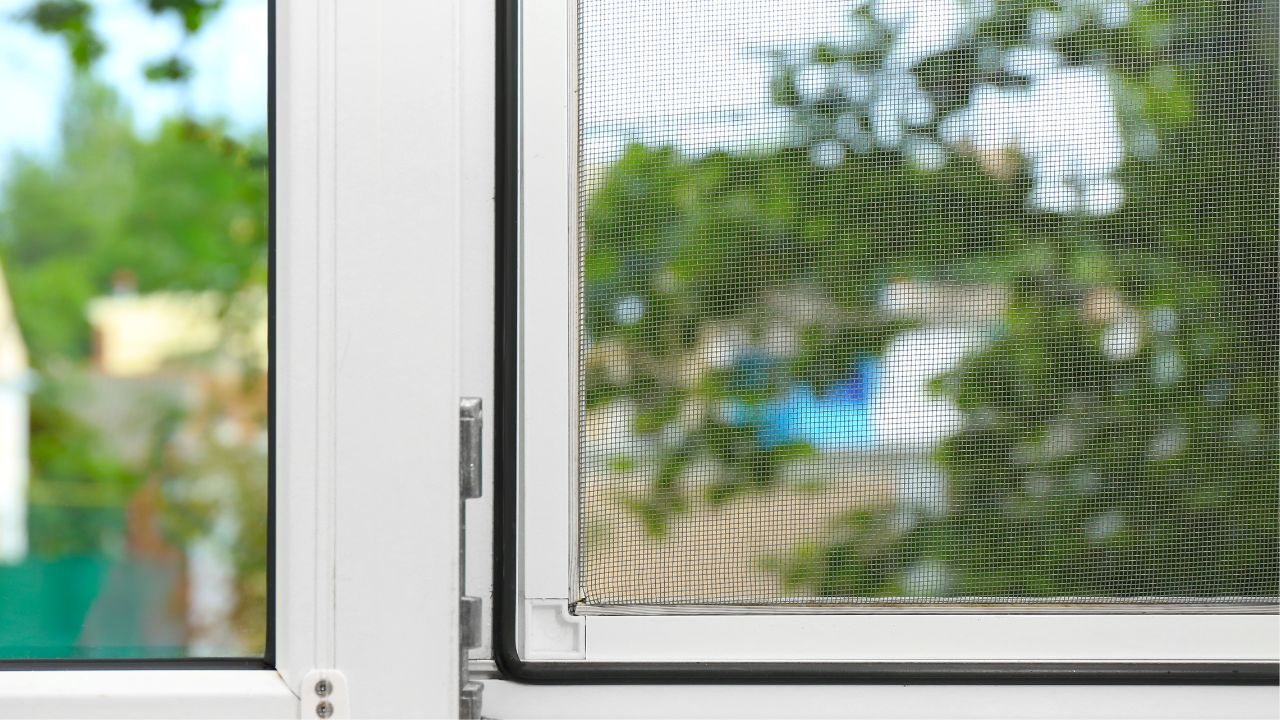Having seasonal allergies may be a huge problem, especially when opening your window to get some fresh air during pollination periods in spring and summer. One probable solution that can effectively address this issue is the use of the latest anti-pollen material screen. The screen material blocks pollen, making your indoor air healthier and allowing you to ventilate the room without getting different allergies.
Here, some of the most advanced types of anti-pollen screens will be discussed in greater detail.
Most Advanced Types Of Anti-Pollen Screens
1- Enhanced Anti-Pollen Window Screens
Innovations in window screen technology have led to the development of screens made from tightly woven or knitted fabrics that feature exceptionally small holes. These enhanced anti-pollen window screens are crafted to filter out pollen while maintaining superior air flow. Studies show that screens constructed from finely woven polyester are capable of blocking significantly more pollen particles—over 50% more than those made from conventional materials like fiberglass or aluminum. These enhanced screens surpass traditional insect screens in terms of allergen filtration due to their specialized design.
The polyester material used in these screens is meticulously engineered to have tiny openings that trap more particles while still allowing air to pass through. Polyester also provides benefits such as resistance to sagging, stretching, and corrosion, making these screens a durable and effective solution for homes in need of reliable pollen filtration.
2- Advanced Micromesh Screens
Advancements in screen technology have introduced micromesh screens, characterized by their ultra-fine holes that are less than 600 microns wide—a stark contrast to the larger, roughly 1000-micron holes of standard screens. This micrometric grid is efficient at capturing over 85% of pollen grains, greatly reducing indoor allergen levels.
Micromesh is said to perform two venting operations while effectively excluding a major chunk of pollen and related particles. This allows people to enjoy the fresh air without having to suffer from ailments such as sneezing or congestion. These screens are especially useful for those who love natural ventilation through the opening of windows but still need protection from allergens floating in the fresh air.
3- HEPA Air Filtration Systems
While not a screen technology, HEPA air filters significantly augment the level of allergen control inside homes, complementing anti-pollen screens. HEPA, which stands for high-efficacy particulate air, refers to filters made from densely packed materials that can trap up to ninety-nine per cent of particles that are 0.3 microns in size and larger. These filters effectively capture a wide range of allergens, including pollen, mold spores, dust mites, and other airborne particles.
Upgrading central HVAC systems with HEPA filters adds an additional layer of allergen protection, ensuring cleaner air circulation throughout a home. These filters are particularly effective at capturing any allergens that may enter through open windows, thus maintaining a lower level of indoor allergens overall.
Benefits of Using Advanced Anti-Pollen Material Screens
- Enhanced Air Quality: A major benefit arising from the use of advanced anti-pollen screens, for instance, is the impact on the quality of air within the enclosed space. Since they block over 95% of airborne pollen and other allergens, these screens provide a better lifestyle.
- Reduced Allergy Symptoms: Every allergy-sensitive person would surely awaken to the fact that they will be free from allergic effects like sneezing, itching, and congestion. This increased comfort can significantly affect the quality of life for some people.
- Ventilation Without Compromise: While such screens as micromesh are more effective in trapping most of the allergens, they provide good air circulation. This means you can allow fresh air— and thus, get the benefits of windows opened, such as breeze and decreased indoor pollution—without the drawbacks of allergens infiltration.
- Durability and Longevity: Materials such as polyester fabric are durable and do not sag, stretch, or wear easily. Thus, the screens guarantee good allergen filtering for many years and, therefore, prove to be quite cost-efficient in the long term.
- Increased Energy Efficiency: These screens can help your cooling and heating systems balance the indoor air circulation by allowing fresh air flow in the room. This can lead to better efficiency of energy use in a home or office and may call for less expenditure on utility costs.
- Environmental Benefits: Opting for advanced anti-pollen screens that enable natural ventilation can minimize the reliance on air conditioning and consequently decrease your carbon footprint.
Conclusion
Advanced anti-pollen material screens provide a powerful solution for those suffering from seasonal allergies by effectively blocking airborne pollen. Whether opting for speciality anti-pollen window screens, micromesh screens, or supplementary HEPA air filters, these innovations allow you to enjoy the benefits of ventilation without compromising your health. With benefits ranging from reduced allergy symptoms to enhanced air quality and durability, investing in these advanced screens can lead to a significantly improved home environment.

